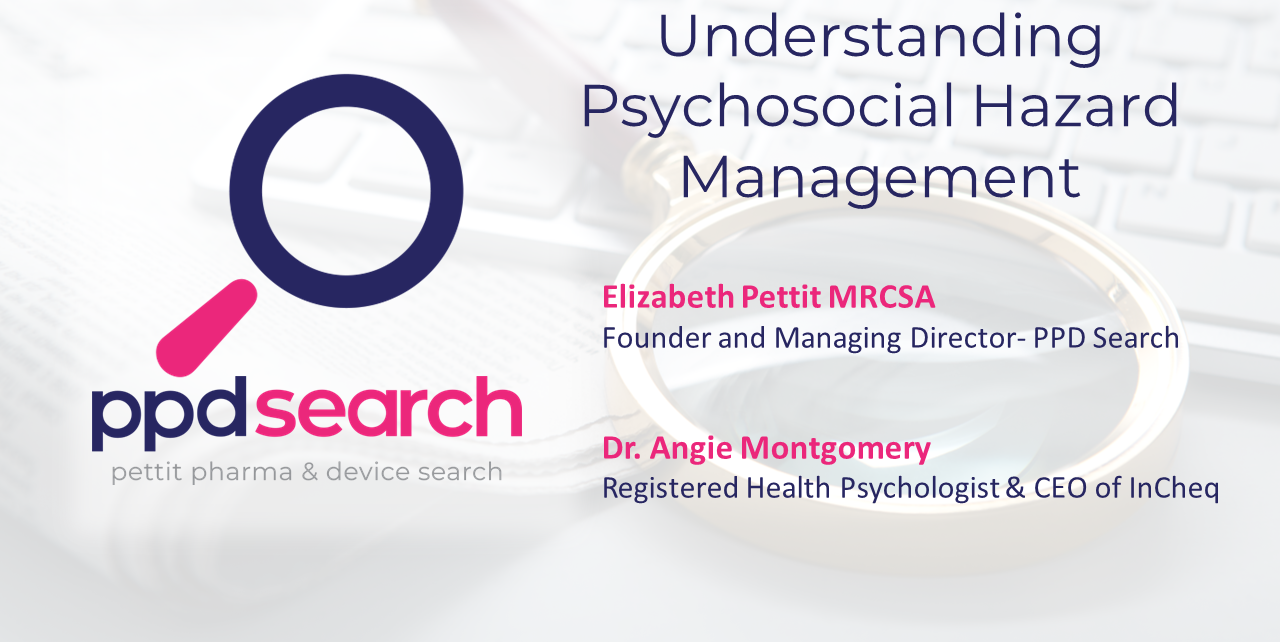How will your organisation stand out amongst your competitors?
Published on September 23, 2019
Written / Hosted by: Elizabeth Pettit
By Elizabeth Pettit | August 2019
In the last 12 months, my colleague, Rachel Tonkin and I attended the annual RCSA Recruitment Conference, along with approx. 300 of our recruitment industry colleagues, primarily senior consultants, leaders and owners of recruitment organisations, both big and small. We heard from industry experts from around the world and locally, who talked about social, economic and political trends in relation to the future of the workforce and attracting talent, along with some well-known celebrities, (for want of a better term), who shared their amazing stories of strength and courage against adversity and how we could apply this to our businesses. We heard from Layne Beachley (one of the most amazing speakers we have ever seen), Magda Szubanski, Andrew Banks, Barry Asin, a leading authority on workforce solutions worldwide, Greg Savage, a recruitment industry veteran with over 35 years’ experience, who regularly speaks at staffing conferences around the world, and many more incredible thought leaders in this area. The key message at the conference was loud and clear, the workforce is changing dramatically, the future looks very different and companies need to be ready for the challenges that lay ahead. I wanted to share the key take-aways and some other tips in this blog;
- There is a global “war for talent”, the challenge of attracting, hiring and retaining people has never been so difficult, across all industries.
- Hundreds of CEO’s were recently interviewed and their main concern is attracting and retaining talent. People are your number 1 competitive advantage, so if you can’t attract, engage and retain them you will not be as profitable as companies that can.
- Your Employer Brand is critical. The candidate experience is critical. If candidates have a bad experience with your organisation they tell a few people, who tell a few more and before you know it, it’s even harder, than ever, to attract people to work for you.
- The recruitment process is a “two-way street” like never before. Candidates are interviewing companies as much as the company is interviewing the candidate and being flexible is key. We see more and more companies offering flexible hours, working from home, ability to purchase extra annual leave, better compensation and benefits and the list goes on, however, flexibility and location for better work/life balance seems to be of primary importance, along with, (especially for Millennials ), working for a company that does something purposeful and meaningful.
- By 2025, 75% of the workforce will be from the Millennial generation, so think about what is going to interest this generation and how you are going to attract them!
- On average highly engaged organisations were up to 20 times more likely to see improvements in customer satisfaction, attraction of key talent, a decrease in sick days, and higher productivity, customer loyalty, and profit than those with an engagement score of less than 60% (Source: RedBalloon/AltusQ Engagement Capabilities Report).
- 1000 CEO’s were recently interviewed and the #1 competency they now look for is “Creativity”.
- 75% of candidates say that if they have to complete more than one screen/page of an application form they will not apply for the position. Keep your application process simple.
- AI is here to stay, the future of work is being disrupted, get up to speed with how technology can help your talent acquisition strategies. Data analytics is king.
- Temporary and contract talent is dramatically on the rise.
This was no surprise to us, we see this every day and endeavour to educate our clients on why they have to move fast, they have to have a strong EVP (Employee Value Proposition), they have to treat candidates with respect, they have to give timely feedback, they have to make quick hiring decisions, you can’t wait for “someone better to come along”, if you have a good candidate hire them, it seems client expectations are on the rise and no one is often good enough. We see companies taking 6 months to fill jobs because “maybe there is someone better out there”. What is the opportunity cost of leaving open vacant positions? One of the first things candidates ask us, after “what’s the salary?”, is how long has the position been vacant? Think about a house being on the market for too long, we ask “what’s wrong with it?”, it’s exactly the same with jobs being vacant for too long, no matter which way you frame it, the candidate is suspicious.
We constantly get asked “do you have anyone on your database/books for this job?”. These days are long gone. We don’t have pools of immediately available talent anymore. We interview for the roles we are currently working on, as interviewing random candidates in case a role comes up is a waste of time, as if they are good and placeable, they will land a job within weeks, or they will already be in the interview process with numerous organisations and by the time we may have something for them, they have landed another role. Candidates don’t hang around on agency databases, they are savvy, informed, active, they know what they want and they know how to get it, they know they have the upper hand when it comes to landing a job, they know they are in demand. We recently spoke to a potential candidate who we approached on LinkedIn, he said “you are the 6 th agency to contact me this week about 6 different jobs”.
We recently heard a story of an agency who refuses to send CV’s to their clients, they refer candidates to their clients, make recommendations as to why the company should interview them and act as a true recruitment partner, they “consult” with their clients to get the best outcome. One of their clients has placed a few people through them who have been very successful hires. The company said if they had seen their resumes’ they would never have agreed to interview them, so are very grateful that they listened to their recruitment agencies advice. We too work this way and hope that maybe one day we too won’t have to send resumes so companies can shortlist our already qualified and interviewed shortlist. Does this pose the question, how relevant is a CV in the future?
Pay people what they are worth. Don’t offer less on the base salary than what they are currently on. Living in Australia is expensive, borrowing for a mortgage, for example, isn’t based on what they might earn in bonus/commission, it’s based on their guaranteed income. It makes candidates feel under-valued, not a great way to start a relationship with your new employee. If you don’t offer them what they are worth there will be numerous companies that will.
Finally, don’t multi-list jobs with numerous agencies, it sends candidates the wrong message. We see companies with their own ads online, an internal resource headhunting people on LinkedIn and then 3 agencies working on the job, the candidate is confused, they ask “why would they need to do that?”, how important do you think the candidate thinks the job is with numerous people working on it, exclusivity intimates uniqueness, something special, something not available to everyone, isn’t that how you would want to see your positions and company viewed? Uniqueness has value in it. We are all fishing in the same talent pool and it’s small, candidates, especially good ones are in jobs already, we have full employment in Australia, skilled people are employed, so think about your recruitment strategy and what message it sends to the market. Agencies DO NOT prioritise non-exclusive jobs, like all sales organisations, they focus on where they will get a return on their investment in time, effort and money. Multi-listing job orders with numerous agencies is a resume race, it is which agency can get you the candidates resume the fastest, engendering a very poor quality process. Candidate ownership is always an issue for companies and agencies, we see it every day, so clearly that demonstrates how small the market is for talent. Work with one agency for, we would suggest, 4 weeks, give them time to perform a quality process and have them focus on the outcome of finding you the best people, not “oh these people will do as we have no time to conduct a proper search or interview anyone properly as the other 2-3 agencies might get their resume to the company before us”. Aren’t people your best asset, aren’t they going to give you a competitive advantage? So implementing a strategy based on speed not quality outcomes makes zero sense. Multi-listing jobs does not get you more candidates and if it does, I guarantee the quality is poor or the selection criteria hasn’t been addressed.
I hope you gleaned some insights on all this information, I know this is a long blog so I am hoping you managed to read it all. As you can probably tell, I am passionate about the topic of candidate attraction, engagement and retention and working as a true recruitment partner not just another flicker of resumes. The time of disruption is here, everything in the world of work is changing. It’s certainly overwhelming so I believe thinking about addressing talent acquisition strategies should start now. If you would like to speak to me about this or working with us as a candidate or client get in touch, https://www.linkedin.com/in/pettitelizabeth/
From our blog
View our blogs and webinar recordings for insights into recruitment in the healthcare industry, company culture and to hear from senior leaders in the healthcare industry on what they are doing in their organisations, along with tips on landing your dream job.






